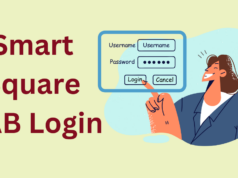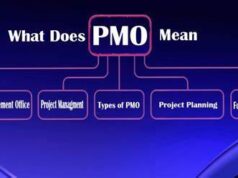If you have the desire to learn, then you really don’t have to look any further than your company. This might not come as a surprise to you, considering the fact that people have been using their laptops and desktops to type up research papers and look up sources for many, many years. What has changed is the fact that education has become almost fully dependent on technology. You probably look up a passage in an encyclopedia digitally faster than you can grab one off a nearby bookshelf. Websites like Wikipedia have definitions and detailed descriptions on just about every topic imaginable, complete with footnotes filled with citations and sources. So, if you are at all curious about how else technology is shaping the educational industry across the globe, continue reading below.
Why Online School is Not Just for Kids
Although online school is currently mostly being associated with school aged children at present, it is actually adult learners who first popularized the concept of learning outside of a physical classroom setting. And at first, online learning wasn’t taken as seriously as it truly should be. The mindset was that it was impossible to learn that way, or at least that the education being offered would be subpar. Modern times have not only disproved this theory, but now people are seriously considering whether in-person instruction is really necessary at all. Click here to see which are the most in demand online MBA courses. With online universities, you can go for your business master’s degree, pursue a career in business administration, or just tighten up your skills. There are classes for everyone, at every point in their professional careers, provided they are willing to learn remotely.
Even Textbooks are Going Digital
Another area of the education landscape that is fast changing involves how textbooks are being read, sold, and disseminated. The nature of education requires textbooks to constantly be edited and updated, sometimes putting recently printed versions completely out of commission. You will know this if you ever held onto a textbook for more than a year or two after you originally purchased it. This fact could be quite frustrating for people, as textbooks don’t come cheap. Today, textbooks are more frequently coming in e-formats, so you can purchase them online and get instant access. In addition, digital textbooks can easily be updated so you don’t have to purchase an entire new copy if and when something changes. Digital textbooks can be ready on laptops and smartphones, and they can be accessed at home, work, or school. If you are taking a full course load, you will come to absolutely love digital textbooks as you no longer have to lug around a dozen heavy books.
Smaller Budget? No Problem – Technology Has it Covered
It often works out that schools with the largest budgets and ability to spend freely offer some of the best resources and most comprehensive curriculums. With a larger budget comes the ability to hire the best professors, supplies, and equipment. However, schools are finding out that they can actually do much more on a smaller budget, if they invest in the right technologies. Google now offers a complete suite of digital tools that instructors and students may use to learn remotely. Everything from spreadsheets and slideshows, to live presentations and message boards are accessible for a lot less than what it would cost to have a similar setup in the classroom. No longer are school districts in low income areas plagued by the inability to properly educate students. Instead, one of the largest remaining barriers to entry is simply getting students access to functional computers. In the end, it makes more sense for schools to invest in computers and other technologies rather than almost anything else.
Online Archives and Educational Websites
Websites like the Wayback Machine have been used to catalog websites that are out of commission or hold historical value. If you want to see how a website might have looked 5 or 10 years ago, you can see how it has grown and evolved, all while comparing it to the version that currently exists. This is important for educators looking to verify the reliability of websites, and it is crucial for students interested in exploring contemporary examples of history. There are also other educational websites, like Khan Academy, that are completely free resources for elementary school aged children, all the way up to college students. You can learn how to code a website, explore quadratic equations, or test your grammar skills – all thanks to technology.
Remote Learning and Working Professionals
In a nutshell, technology has given working professionals hope where they originally had one. When you work regular business hours, perhaps commuting long and far to your place of employment, pursuing a higher education can seem completely untenable. While you might want to change careers or attain an advanced degree so that you can seek out promotions in your field, if you can’t find the time to go to school, well, you can become stuck. Because of the growing popularity of online learning, it is possible to find online schools that teach nearly every topic. Going to school online works precisely the same as going to class in-person, all the way down to applying for financial aid. You can use scholarships and grants to pay for online school, just as you would a traditional brick and mortar college. And incredibly, lots of top-rated colleges and universities are becoming more invested in creating and expanding online learning programs.
New Digital Learning Tools
First there were websites that were dedicated to learning, sometimes offering little more than rudimentary lessons, written in text without any other supporting supplemental visual aids. Then, there were computer programs, like Rosetta Stone, that were completed focused on helping virtual students take on tasks like learning a new language. Then, there were apps that came out that promised distance learners that they could master almost anything. These apps are geared at helping people to learn at their own pace, while breaking down information into easily digestible lessons. So, you might find an app dedicated to helping you learn how to become a carpenter. You can stop the lessons at any time that you want, then pick up where you left off.
Web Platforms That Support Continuing Education
In its first inception, YouTube was just viewed as a video sharing website. You could upload a video of your puppy being absolutely adorable, or you could maintain a diary of sorts where you ranted incessantly about your local politicians. As long as you went by the rules, YouTube was a catch all for anything the content maker desired. Then, along came monetization. A large influx of video uploaders came along, looking for the largest and most impressionable audiences. Instead of just posting funny clips and shocking moments, certain YouTubers began introducing more niche topics like video series on how to invest for beginners. Tutorials on fixing your credit, and entire historical documentaries also began cropping up. YouTube is now a major video sharing platform that has just as much entertainment value as it has educational materials.
Technology Makes It Easy to Find Others Interested in Learning
While technology is making it easier to learn via software and websites, it is connecting life-long learners in other ways. First, you have to realize that not everyone learns the same way, and not all materials can be fully covered with digital materials. Second, there is a social element that goes with learning in general. Whether you are working on a group project with fellow students or are taking up a hobby that requires you to go out into the world, technology is still a crucial key. Everyone from quilters to birdwatchers are using technology and the internet to find what they seek. You might join a local group of horticulturists looking for a new farmhand from an ad you found online. Likewise, groups interested in the history of the automobile might have special events that they announce remotely, but you would still socialize with said group in person.
Online learning has been around for a while, but people are taking a closer look at how it is impacting society as a whole. Distance learning is helping school age children to stay on track, while also giving working adults the freedom that they need to accomplish all of their goals. Hobbyists can also take a class online, at their leisure, while also meeting up with likeminded people. For those with meager financial resources, technology is helping them to perform on par with peers in highly rated school districts that have much more financial support. Technology is serving as the great equalizer, as it no longer matters how much money you have or what hours you work, if you really want to further your education. All you need is a burning desire to learn more and become better at what you do, and you can use technology to help you see your potential while meeting educational goals.










![Wells Fargo Card International and Its Fees [2024] Wells Fargo Card International](https://www.techpreview.org/wp-content/uploads/2024/07/Wells-Fargo-Card-International-238x178.png)







